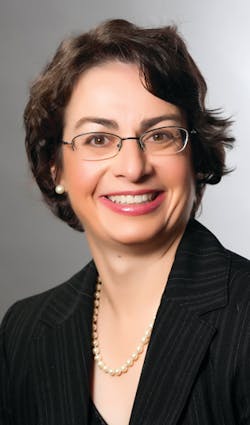When time stands still: How to make the most of time in quarantine
We have all been touched in some way by the COVID-19 pandemic. From being in states where stay-at-home orders were in effect, to having to file for unemployment for the first time, to feeling helpless when family or friends become sick or pass away, there are so many things that have changed over the past few months. Yet, despite all the gloom and doom in the world and in our profession, there are signs of positivity. Looking at the bright side of life even during these difficult times can bring a ray of sunshine to difficult life experiences.
It’s like an Italian family Sunday dinner
While you were staying at home, what things did you accomplish that you never had time to do before? Sure, bingeing on the latest Netflix phenomenon is great, but what about family game or movie night? Having two 20-somethings home is different than having toddlers or teenagers stuck at home, but being able to spend quality time away from the never-ending schedule of to-dos or go-tos may have been a welcome relief. I know that too much togetherness can be grating, but I think people will look back and remember this time in much the same way as we remember family get-togethers. This time together is reminiscent of growing up in an Italian family, where Sunday dinners were always special times, although this time it’s like a never-ending Sunday dinner!
Reading a good book or learning/relearning to play a musical instrument are great forms of therapy or relaxation. Getting out into nature, whether that’s walking down local streets or listening to the sounds near your home, helps relax and rejuvenate even for a short while.
Focus on the present
As we begin to return to the new normal, what will you take back from your days when time stood still in 2020? When you were unable to be with extended family, friends, work, shop, dine out, or do the normal everyday things that often take precedence, did time stand still for you? Did everything around you seem to stop—both literally and figuratively?
During our pre-COVID existence, we were constantly trying to be productive, filling every moment of every day with something, whether actual work or the constant flow of social media and other technology.1 We suffered from FOMO—fear of missing out. We always had to be doing something because, if left alone with our own thoughts and to our own devices, we felt uncomfortable and inadequate.
Yet, COVID—even with all its upheaval—has taken the FOMO disease and reduced its symptoms. We, as a society, have lost the ability to focus; our lives are constant sound bites of info. But with COVID, we’ve had time to stop and focus—on family and on ourselves. Now, as we move forward, are we going to lose that focus? Without focus, we lose relationships. When we maintain focus, our relationships grow and deepen. With focus, we can fine-tune our career path, whether as a clinical hygienist or in another avenue of hygiene. When we maintain focus, we feel inspired, fulfilled, calmer, and less rushed. We can decide on who we want to be influenced by and why we are doing or reading/scrolling through something.
Feeling grateful
What we think, say, or do matters to others, but most importantly to ourselves.2 One can find pleasure in the mundane, feeling grateful for the little things. How many social media posts over these past few months have been about gratefulness? There is a reason for that. When time stands still, we have the ability to love and be loved, to literally breathe within space.3 We can give ourselves and others the time they deserve, making us/them feel important. As we return to the new normal, with all of our new protocols in dentistry and hygiene, how are you going to make your patients and team members feel important and provide them with a sense of time standing still for a short while?
Time is only a measure of movement. Under normal circumstances, the rate at which the human mind perceives time is shared by the rate we wish it to pass.4 When we are constantly moving or thinking quickly, the mind perceives it as time passing quickly. When we are forced to slow down, as we have been in the last few months, time appears to stand still. How many times during the pandemic have you experienced the feeling of not knowing what day or time it is? That is our mind’s perception of time. Moving back into reality, time will begin to speed by again. We will complain again that there is never enough time to do what we need to do.
What can you take from this experience back into your reality to allow time to stand still? When we are forced to slow down and be truly present, we are given the chance to understand what is important.5 The gift of time is precious in providing meaning and peace to ourselves and others. When it stands still, it can provide admiration, awe, wonder, and love. Even if only for a minute or two.
References
- Kenny M. When time stands still. Creative Coaching. https://mariekenny.com/time-stand-still/
- Barne M. When time stands still. Breaking Down Barriers. https://bdbcommunication.com/when-time-stands-still/
- Rolheiser R. When time stands still. Oblate School of Theology. https://ost.edu/when-time-stands-still/
- Hueting J. Time stands still. Philosophy Now. 1994. https://philosophynow.org/issues/10/Time_Stands_Still
- A lesson in how to accept graciously the gift of time. May 3, 2019. College Counseling Service. https://mamiknowseverything.blog/2019/05/03/a-lesson-in-how-to-accept-graciously-the-gift-of-time/
About the Author

Ann-Marie DePalma, MEd, RDH, CDA, FAADH, FADIA, FADHA
Ann-Marie DePalma, MEd, RDH, CDA, FAADH, FADIA, FADHA, is a graduate of Forsyth School for Dental Hygienists, Northeastern University, and University of Massachusetts Boston. Her passion, dedication, and expertise inspire dental professionals through her CE programs and publications. She has experience as a clinical hygienist, a faculty member, consultant, and software trainer, and is a fellow in several dental hygiene organizations. Ann-Marie is an Esther Wilkins Distinguished Alumni of Forsyth Award recipient. Beyond dentistry, Ann-Marie volunteers in several local community organizations.

